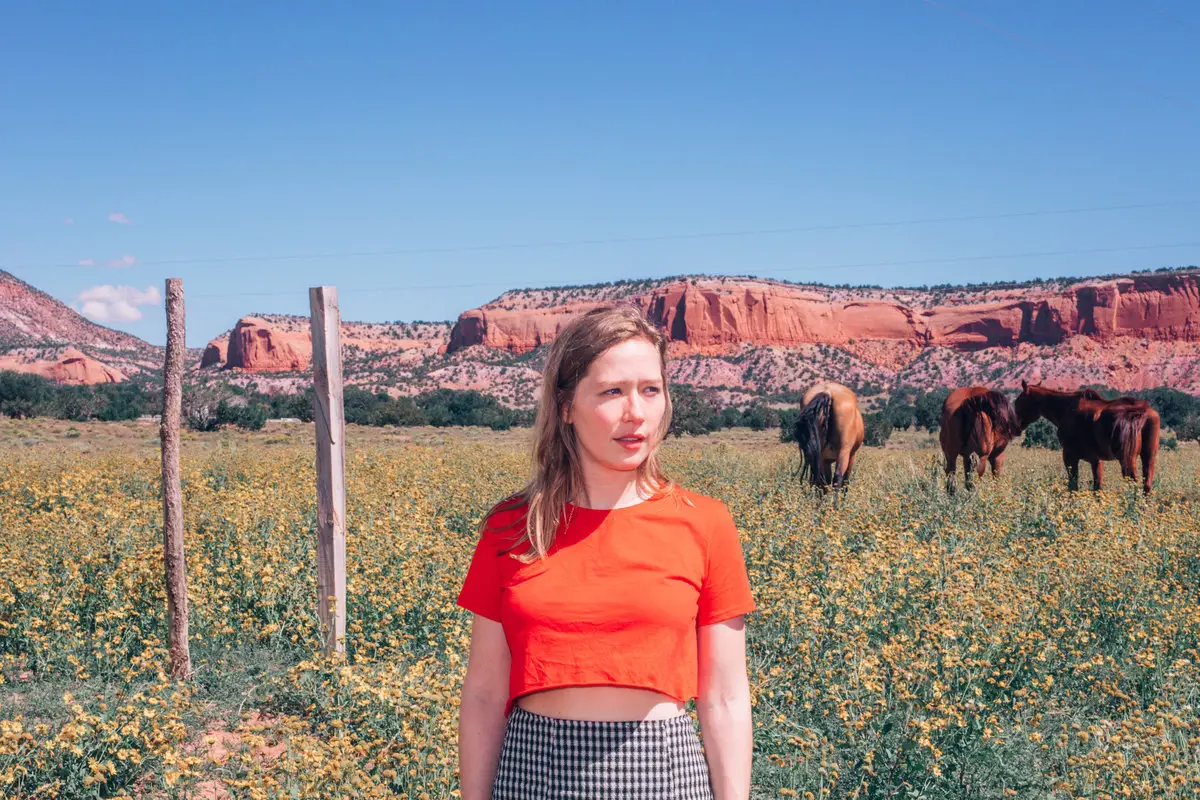British artist Nerina Pallot chats with Atwood Magazine about her eighth studio album ‘A Psalm For Emily Salvi,’ her relationship with her fans, and what drives her to make music.
‘A Psalm for Emily Salvi’ – Nerina Pallot
Nerina Pallot and I have spoken before.
I interviewed Pallot seven years ago when her album Stay Lucky was released in 2018. Pallot is a British singer-songwriter-producer-multi-instrumentalist who has been making music since the early 2000s. Her second full-length album Fires, which was self-funded and released independently sent shockwaves through the British music industry with both critical and commercial acclaim. Pallot has since released six full-length records and dozens of EPs. She has also written for Kylie Minogue, Diana Vickers, and the Brazilian singer Sandy. Pallot’s cover of “Love Will Tear Us Apart” can be heard in Normal People, the TV adaptation of Sally Rooney’s novel.
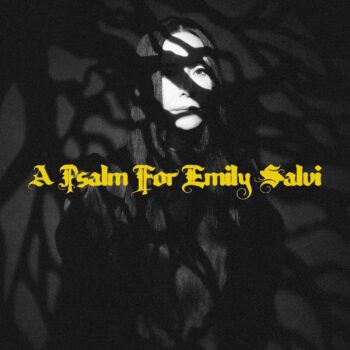
When I meet Pallot on a wet morning a week before the release of her eighth full-length studio album A Psalm For Emily Salvi (November 1, 2024 via Idaho Music), Pallot observes how different the world is now compared with seven years ago.
A Psalm For Emily Salvi is partially inspired by the immense grief Pallot experienced in 2022 when a dear friend, her aunt, two uncles, and her sister all passed away in the space of nine months. The album is also inspired by a correspondence Pallot had been in with a fan, now friend, “Emily Salvi” (not her real name) over several years. Emily wrote to Pallot when she was about to head off to a cabin in the woods – a Walden inspired adventure to try and unblock the writer’s block she had been suffering with.
“On this cold January morning, she suggested I think about the Psalms – not just in a spiritual sense, but a structural sense. She suggested I find a way of my own to write about this internal struggle – the reckoning with grief, its accompanying anger, the feeling that how can there be a God when bad things keep happening, and yet how can there not be a God when we are struck by moments of profound joy and gratitude? Psalms, in essence, are songs of grief and redemption and ultimately, acceptance.”
You won’t find “Emily Salvi” in any phonebook or on social media, but Pallot wanted to honour her friend nonetheless, whose email that morning gave her fresh eyes in which to approach grief and ultimately, the joy and love that grief reminds us of having experienced.
Atwood Magazine spoke to Pallot from her home in Berkshire in the United Kingdom a week before A Psalm for Emily Salvi was released.
Pallot had just come back from climbing Ben Nevis with her teenage son in Scotland. What I will say about speaking to Pallot is that, for me, it’s like having a conversation with a big sister. I first met Pallot very briefly at a gig in my late twenties and a decade later, having a conversation with her remains the same. Inquisitive, empathetic, funny, and a sense of calm is how I’d describe Pallot.
We touched upon many topics including but not limited to, how she made the new album, being a woman in the music industry, her musical inspirations when making the record, how music can almost be prophetic, and her relationship with her fans.
Listening back to our interview made me feel better about life, like somehow it was all going to be okay.
— —
:: stream/purchase A Psalm for Emily Salvi here ::
:: connect with Nerina Pallot here ::
— —
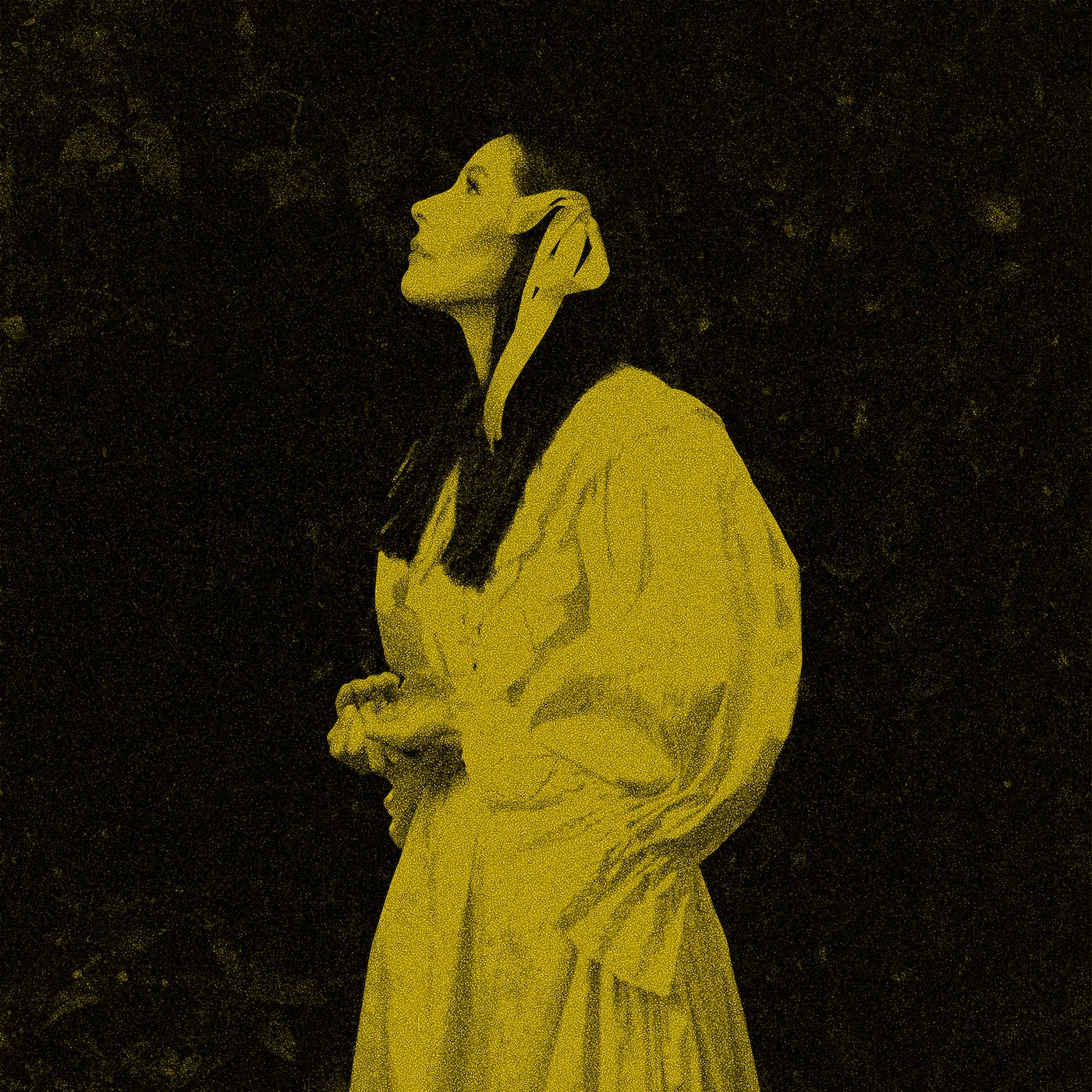
A CONVERSATION WITH NERINA PALLOT

— —
Nerina Pallot: The album did not come into being because of happiness and light, let’s put it that way. We spoke before didn’t we, for Stay Lucky. Oh God, the world has changed irrevocably in the seven years since we last spoke.
Atwood Magazine: Yes, we did. I really enjoyed Stay Lucky. It was felt like a love letter to jazz.
When I try to contextualise your new record, I find myself pulling towards your 2015 release, The Sound and the Fury, which is a very heavy record politically and socially. I feel like in those seven years since we spoke everything has kind of gone to shit.
Nerina Pallot: It literally has. I mean it’s funny, I re-listened to The Sound and the Fury the other day because I’ve been doing this series on YouTube called ‘Only the Old Songs’, and I was reading the album notes, and I didn’t realise I was being weirdly prophetic in it. Talking a lot about the racial tensions in the country at the time, just the general anger, the class war, and then with the riots this summer, I just thought, ‘I thought we’d put this to bed, I thought this would never happen again.’
I think this record is me being as cheerful as I could be whilst feeling dreadful if that makes sense, but I don’t think I don’t think when you have so many bereavements that close together that you can process it in a reasonable time frame. I think I’m still processing it now.
I just wanted to make something that was like… how do I put it… the songs, they’re not psalms, there’s no religious aspects but there are spiritual aspects to them. I wasn’t going to go and set the psalms to music but to take the idea that a song can be this space where you deal with what’s happened to you. You rage against it, you try to process it, and in the arc of the story you try and find, if you can, a resolution and if you can’t, you at least find acceptance.
You could be so pretty if only you lost weight
If only you ate half of
what is sitting on your plate
If you made a little effort,
the boys would all come to your yard
Do you have to be so stubborn, child?
Do you have to make things hard?
I was thinking about that even with the song, “You Could Be So Pretty,” which I basically wrote it for women everywhere. I’m sure they’ll be men who relate to it, but it was idea of from birth women are fed a very particular set of rules and conditioning. You’ve got to look this way, you’ve got to be this way, what popularity means, and then when you finally get to a certain age – I turned 50 this year and I don’t know that I’ll ever have a handle on my shit, but I feel like I understand things a bit more, – so just as we reach the point of understanding, society tells us all ‘well you’re done now, go to the scrap heap’, just when you reach your power.
Which I am sure is not an accident.
Nerina Pallot: No, because now we’re a threat.
You're also in an industry where looks, age etc, are given extra emphasis.
Nerina Pallot: When I played the major label game, I was in it, but I’m lucky, I’m very happily removed from it. My husband (Grammy Award Winning producer Andy Chatterley), who is also my manager, I’ve just begged him to always give me a buffer, so I deal with it as little as possible because it wasn’t healthy for me.
When I look back at the period during Fires my personal life was a mess, and I was unhappy, and I was drinking a lot. To give you an example, I remember doing Children in Need with Amy Winehouse, who was wonderful, and I was drunker than Amy Winehouse that night.
Some people cope with it well, but it is a tonne of pressure. I haven’t been in the mainstream for so many years now, so it’s not a problem for me but I gave up reading anything about me quite a long time ago because there was such a cruelty on message boards, and especially for a woman, a lot of it is how you look. The whole pitting female artists against each other it’s just… I think it is a kind of sickness in society, and I don’t know how we move away from it.
What were you listening to when you wrote the record? Were you recording it with an idea of what you wanted it to sound like?
Nerina Pallot: I always have my reference tracks when I’m putting a record together. However, when I start writing, no. I just let whatever comes out, come out. Apart from “Pressure,” the opening track on the album. I had found a loop I really loved for that song and I was toying with it. I was thinking a lot about Grace Jones and Kendrick Lamar. I don’t love all his albums, but I love certain albums of his because I think the production is astonishing and lyrically, he hits nail on the head in a way that is very unusual for his genre. So, on that track, they were my direct influences from beginning to end.
So when it comes for you to testify
Do you speak the truth or tell me a new lie?
All that I want is somе dignity
But all my love keeps testing me
During production I was listening to a lot of Jamiroquai. My son has gotten into what I consider best period of Jamiroquai. I was a massive soul and funk and jazz fan growing up. My generation re-bottled those sounds with artists like Jamiroquai. I remember I went to see him play to like 300 people in local clubs in West London. I had just moved to London as that scene was blowing up and I was trying to get into that scene. Anyway, one day I was walking past my son’s bedroom, and I could hear Jamiroquai, and he’d gone out and bought the vinyl. I haven’t even got the vinyl! I then I just surrendered to listening to the music from my late teens and early ‘20s when making the record.
When I think about Stay Lucky, that record was very influenced by chanson française. Listening back, there was a very specific sound I was going for on that record. Whereas with A Psalm For Emily Salvi, I treated each song as an entity of its own. I also wanted to give people a satisfying experience as much as I can.
My fan base is quite diverse, which is a wonderful thing, but I would hate to feel that someone would listen a record of mine and not find at least one or two songs that they really got into. When I make a record like The Sound and the Fury or Stay Lucky that’s a little bit more dangerous because it’s one thing all the way through the record and I could risk alienating somebody.
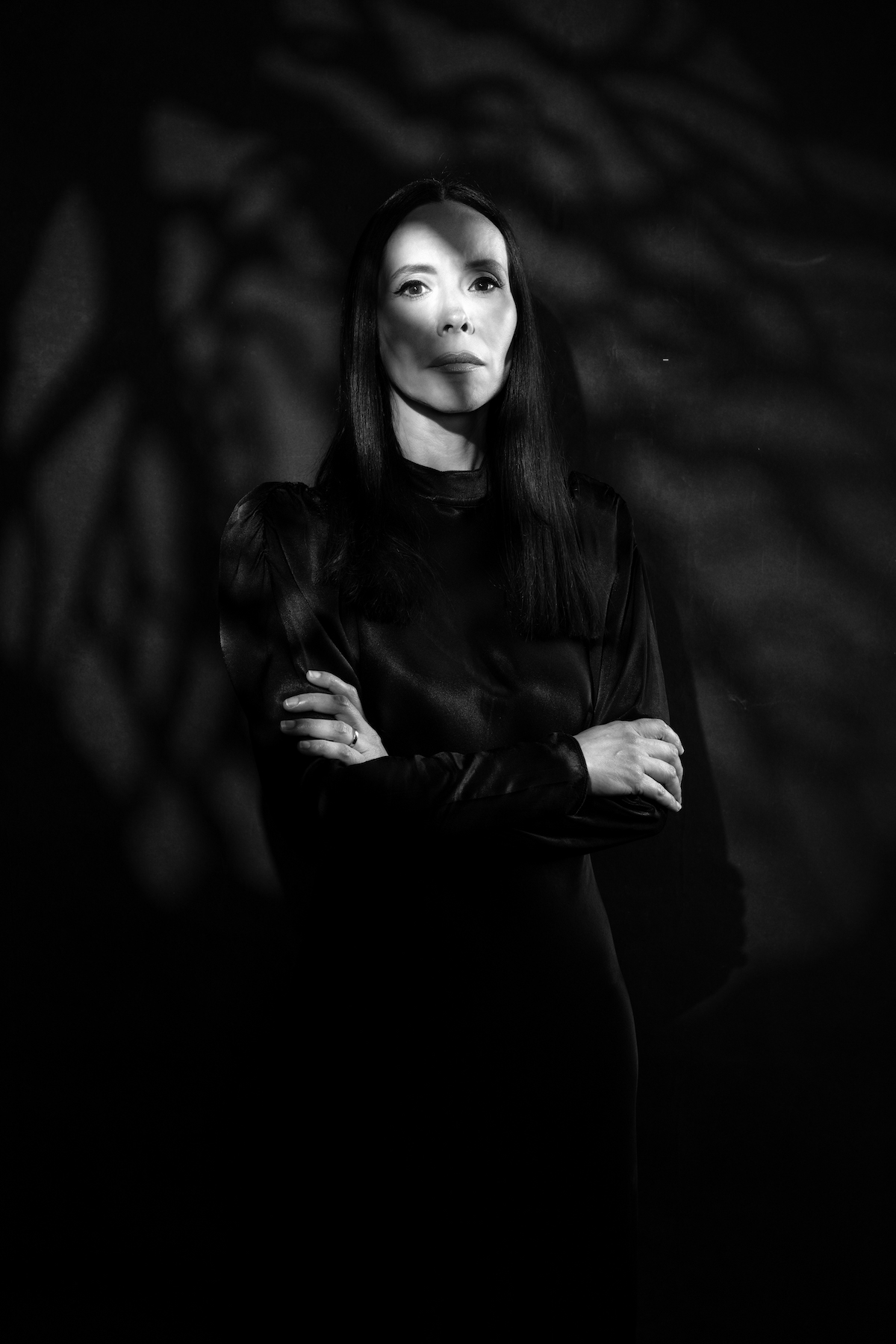
What was the first song you wrote for this record?
Nerina Pallot: Well, technically it was that song “Hold My Hand.” I started that 20-odd- years ago in an airport departure lounge, but I hadn’t finished it until this record, but I think probably the last song, “And Here a Garden.” I wrote that in 2022, not long after my friend had died, and I think about a week after my godfather had died, and I think those were the… they were all… it was just bananas. I was just thinking about it the other day when someone was asking me this, I lost so many people.
Hold my hand
Don’t you want to? Come on
Hold my hand
Don’t be afraid to, oh, our friends
Our friends don’t need to know
They find out, they’ll have to understand
Hold my hand
Can you map a song from the album to each loss or was it not that deliberate?
Nerina Pallot: I wrote “And Here a Garden” and then I didn’t write anything else for about a year. Nothing came to me.
See, I don’t know what happens to us
when we say goodbye
Do we disappear forever?
Do we fade into the sky?
You that little bit of sunshine
when I only have the rain
You that little bit of hopefulness
when I been all up in my pain
You’re the love I feel sometimes
from outta nowhere by my side
I know that you are gone,
but I don’t think you’re gone
‘Causе how can you be gone
when nothing diеs?
Is that unusual for you?
Nerina Pallot: No. I go through periods of writers’ block. It’s quite common. Usually, it shifts. I just didn’t know what kind of thing to make, and I knew I didn’t want to make something really sad because I knew that wasn’t going to help me.
I was just feeling so sad, and I want to cheer myself up. Songs like “High Time” for example, are not really related to that grief, it was just this melody I really fell in love with. I fell in love with the groove, and I thought I’m just gonna let it be this almost be an ode to the ‘70s records I love. I wrote that for myself to just indulge myself.
I think anyone who makes art is always balancing indulging your own creative itch but also if you’re fortunate enough to have an audience, which I am, you always have to write for an audience. I know some artists can get away with it. I know people like Lou Reed went off and made completely intense bizarre records and people still came back to them, but I’m not an artist of that that kind of level so I can’t do that.
I feel like you’re constantly balancing, is this scratching my itch but will someone else find something in it, because otherwise it becomes very self-indulgent.
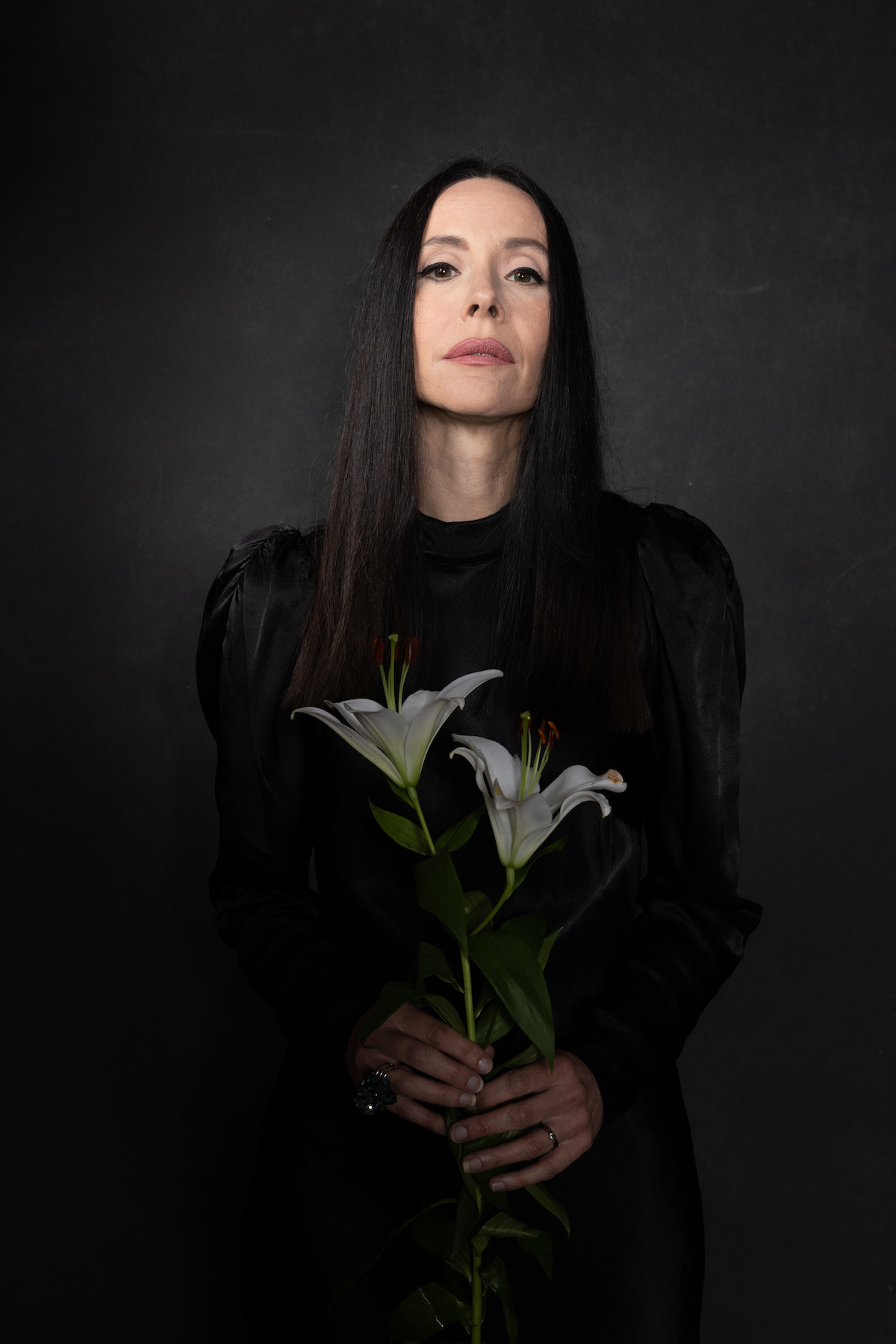
That’s refreshing to hear. A lot of critics and artists say you should make art for you and no one else, whereas if I write something… and I sometimes write it with one person in mind, even if I know they’re never going to read it, but that viewpoint is seen as not being truly artistic.
What’s the point, to some extent, of writing something or creating something or painting or playing something if no one else is going to hear it?
Nerina Pallot: I think any creator is lying if they say they’re not thinking about an audience. Why would you commit it paper, why not let it stay in your head then. If it’s just for you, never commit it to physical reality. So, I think that’s a big fat lie!
I think you must have respect for your audience too. It’s one of the reasons that when I play live, I always try and talk to the audience, because I feel like humans have paid money, have come to a space, they’re committing to you for 2-3 hours of their life, when there’s a million other things they could be doing. You as the artist must have the decency to acknowledge what they’ve brought. Buying a ticket is more than money. I have been to gigs and have been personally affronted by artists and have never been able to listen to them again.
Coming back to your audience, obviously you named the record after a fan, now friend. Does she know that the record is named after her?
Nerina Pallot: Yes, she does. I asked her permission because I wanted to tell the story without using her. I wanted to use her real name but then I was worried. I think 99.9% of my fan base is lovely and safe but there might just be a few people who get a bit weird and would try and dox her. I was already feeling compromised about it and I didn’t want to use her, if that makes sense, and then something went awry then it would have been all about me using her for artistic ends and not thinking about the fact that it might have repercussions for her, so the two of us discussed it and then we came up with a name that we felt had the spirit of her name but also gave it a twist. The word ‘salvi’ has this meaning which in Latin is ‘saved’ and in Hindi it means ‘beautiful and intelligent.’
I often think if I hadn’t been given the ability to make music and find an audience, I’m convinced I would be 100 times more miserable. I think life would have been quite hard for me had I not had this one thing that gave me, not just confidence, but gave me peace. When I make music, when I play music on stage, I feel a peace in a way that I don’t feel in my everyday life, so I’m profoundly grateful for it.
It came together quite quickly once the writers’ block had been removed.
Nerina Pallot: Yes. I had a sketch of “High Time.” I had a version of “Regrets” that wasn’t fully formed but then the rest of it fell into place really fast. I pretty much wrote all of it from January this year. I’d say all the tracking was done by the end of April.
What’s your system for weeding out songs that don’t end up on the record? You’re quite conservative with how long your records are, compared to what we’re seeing right now with artists putting out 20-song records.
Nerina Pallot: That’s a really good question. I’m not sure that I have a specific formula but for me it’s about what feels right. You’re right, I tend to say an album should be 10 to 11 tracks. I grew up in the golden age of the album, in the ‘70s and ‘80s, an album was a big deal when I was a kid, and I think an album is a conversation between the songs and between the songs and the listener. It’s almost like a little family. I really like to think of an album as a Thanksgiving or Christmas dinner. There will be different characters together, and there’s going to be tension and it’s going to have a communal feel.
I don’t have a system as such but either it’s the subject matter didn’t really fit the arc. “High Time” is probably the anomaly on this record, in the sense that the subject matter isn’t related to the album as such, but there’s a vibe about it that I really like. Sometimes it’s just sonically it doesn’t sit it right or the lyrics not strong enough, or this melody isn’t strong enough. It’s about quality control. I don’t understand why people put 14 to 15 tracks one an album because I can genuinely say, I cannot think of a 14-track album where it’s “all killer no filler” I just can’t think of one.

You’ve spoken about keeping your albums to 10-11 songs. Do you think there are any unreleased songs or different versions/demos that you could see ending up on a deluxe version of this record?
Nerina Pallot: I always have a few songs knocking about that I record during an album and that don’t make it or don’t fit. There’s also an Easter Egg on the CD version of the new album…
What is your favourite track on the album?
Nerina Pallot: That is such a hard question. I love “Madison.” That was a song about a dream I had about a girl. She’s somewhere in the Midwest. I don’t know why she’s in the Midwest. It was a vivid dream, and I could see her coming home from work. She’s in her teens, early 20s, and she’s lost her mum. She goes into her mum’s old room, which is still as it was, and a few clothes are left in her mum’s cupboard, and maybe the house looks a bit like my godmother’s house in upstate New York. She smells her mum’s clothes to get through the day because she’s missing her mom so much. I haven’t had that happen before.
I do want to know if there’s a girl called Madison somewhere in America who I’ve written her, her story. I guess I also wrote the song for me in the sense that “it hurts a lot ’til it hurts a little,” and that is the only profound thing I can say about grief is, it hurts a lot and then it starts to hurt less.
Madison, you’re not dumb as hell
You’re just going through something,
everybody will as well
And it hurts a lot ’til it hurts a little
It hurts a lot ’til it hurts a little
Oh, you just need a sign,
some matter over mind
Yeah, you just need a sign
that you’ll be fine
— —
:: stream/purchase A Psalm for Emily Salvi here ::
:: connect with Nerina Pallot here ::
— —
Stream: “Madison” – Nerina Pallot
— — — —

Connect to Nerina Pallot on
Facebook, Twitter, TikTok, Instagram
Discover new music on Atwood Magazine
© Tommy Reynolds
:: Stream Nerina Pallot ::


 © Tommy Reynolds
© Tommy Reynolds
